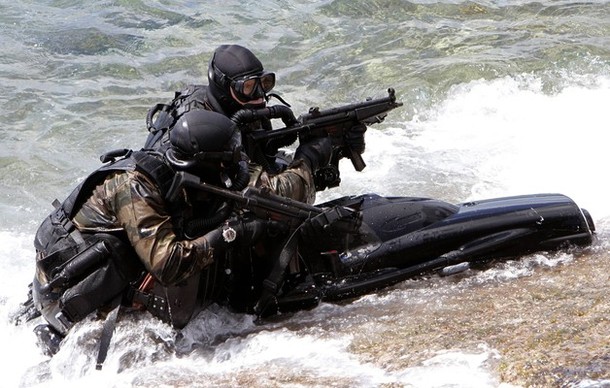
From the Office of the Prime Minister of Spain : Ensuring the security of Spain, its inhabitants and its citizens is an essential responsibility of the Government and the Public Administrations, but also of society as a whole. Security today is everyone´s responsibility.
It is a complex task in an interdependent and changing world, in which the worst economic crisis in more than 80 years has converged with a shift in economic power from the West to Asia.
We face crosscutting, interconnected and transnational threats and risks. Preserving security requires international and national coordination as well as the involvement of society as a whole.
The border between domestic and external security has become blurred. National policies in the traditional areas of security are no longer a suffi cient safeguard in the 21st century. Only a comprehensive and interdisciplinary approach to security at national, European and international levels can address the complex challenges we face.
The core objectives of this first Spanish Security Strategy are to analyse the threats and risks to our security, identify courses of action and define coordination mechanisms. It has a scope of one decade and will be reviewed every five years or when required by circumstances.
This Strategy has been conceived with a national, European, international and global perspective, and from the standpoint of Spain’s standing as a medium-sized power with a specifi c profi le and important comparative advantages. Our capacity for action is enhanced through our membership of a European Union (EU) that shares our interests, and our recognised standing as a country committed to effective multilateralism. We have global interests to defend and transnational threats and risks to face, many of which will come from abroad. In order to preserve our security, we will occasionally have to become involved in actions far away from our borders.
Globalisation´s drawbacks, demographic imbalances, poverty and inequality, climate change, technological dangers and radical and non-democratic ideologies are all transnational drivers that can multiply the effects of risks and threats or even transform their nature.
This Strategy identifi es the most important threats and risks to our country’s security and outlines how they might be addressed. They can occur in different domains where action would be required: on land, at sea, in the air, in space, in cyberspace and in the information sphere. This analysis constitutes the basis for formulating strategic lines of response, developing capabilities and carrying out organisational reforms. . . .
In the Euro-Atlantic space, NATO, the largest intergovernmental defence alliance, is essential to security in the region and for specific actions abroad, such as in Afghanistan. It must keep working to define and implement responses to today’s world and create instruments that promote understanding, stability and peace. In its Strategic Concept, NATO establishes collective defence, crisis management and cooperative security as its fundamental tasks. Its challenge is to develop these three assignments in a balanced manner, and with a broad understanding of security. . . .
In the coming years Spain may have to participate in different types of armed conflicts, in which the role of the Armed Forces will be essential. Our partners and allies may not be directly involved in some of these conflicts. Our geographical location, including the two Autonomous Cities and other territories, and our history could directly affect the Spanish territory, citizens or interests. Therefore, we should maintain our own defence capability.
Spain may have to participate with its allies and partners in conflicts that directly concern our interests, due to a direct threat to the security of our territory, our citizens or Spanish, European or Western interests. Such participation may result from the ties between us, as well as the interests and obligations of mutual defence that we share with our EU and NATO partners and allies or others with whom we maintain strategic bilateral relations.
Likewise, and not excluding the above, our participation might also derive from Spain’s commitments in international organisations such as the UN and the OSCE. They could lead our country into multilateral participation in peacekeeping, civilian protection or other operations that might not affect our interests but could derive from our shared values, yet complying always with the United Nations Charter.
In any case, Spain’s military missions abroad will be developed with the proper Parliamentary control and according to the United Nations Charter, as established in the National Defence Law 5/2005, and by a proportionate threat or use of force. (photo: Reuters)
Image: reuters%2012%201%2011%20Spanish%20special%20forces.jpg
